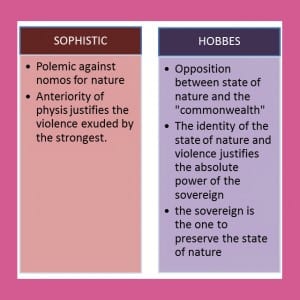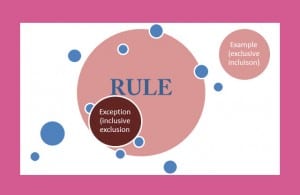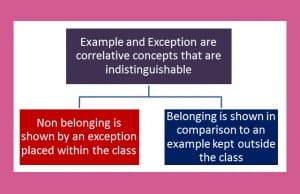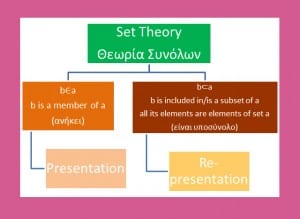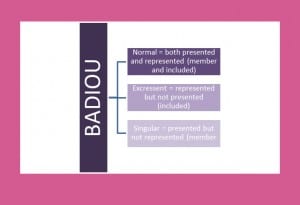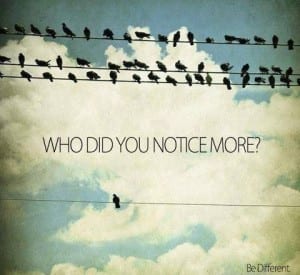6. God is Dead, but He Doesn’t Know it: Lacan’s Play With Bobok
The modern atheist thinks he knows God is dead. However, the very notion of believing someone to be dead unconsciously places modern man in the place of still believing. For Lacan the true formula of atheism is not to declare that God is dead but rather to declare that God is unconscious. One of the basic traits of modernity is the shift in what constitutes repression: what is now repressed is not the subject’s forbidden desires but prohibition itself; the subject has become a “tolerant hedonist dedicated to the pursuit of happiness” giving heed to the superego’s insistence to enjoy!
However, the very diminishing of oppressive authority has resulted in even harsher prohibitions and even the previous privilege of harboring at least transgressive fantasies has given its place to the commonly known “guilt trip”. The common child-adult dialogue of :
Adult: Do this!
Child: Why?
Adult: Because you have to.
And the subsequent obedience of the child who at the same time maintained its own personal unwillingness, has become:
Adult: I want you to do this but if you don’t want to do it OOOO-kaaaay…
Child: *dumbfounded silence due to the fact that it DOESN’T want to do what
it is asked to do but at the same time DOES want to please –stupid desire to be
desired- the parent*
Subsequently the guilt trip is “successful”, the child does what it is told but has lost even the freedom to be unwilling… The child can no longer rebel against authority as is its nature but has to appear complacent even whether it likes it or not… And if THAT false freedom of choice doesn’t mess up a person’s superego for life, what does??? The obscure superego injunction as Lacan calls it is in my opinion what drives all the more kids to therapy nowadays…
Based on that train of thought Lacan supports that in psychoanalysis it is not when a patient has a false impression of himself “it is not enough to convince the patient about the unconscious truth of his symptoms, the unconscious itself must be brought to assume this truth”. It is one thing to talk one out of saying they are an elephant and acting like one and a totally other thing to actually changing his belief and convincing him that he is NOT in fact an elephant…
The same applies to Marx’s theory of commodity fetishism. One may believe that an everyday object has “superpowers” but the task of critical analysis is to discover what those “superpowers” are, not just to deny their existence… This shift form saying that “the commodity (the everyday object) seems to you to have special powers but in reality it is just a means of expressing relations between humans” to saying “you may thing that the commodity appears to you as an embodiment of social relations but actually by participating in those social exchanges what you actually wind up thinking is that the commodity in itself has the special powers to enable those exchanges.” This is portrays why Lacan stated that the formula of materialism is ‘God is unconscious’ rather than ‘God doesn’t exist’. This brings us to Kafka and the comparison of what once was (publically pretending to believe while inside mocking and questioning those beliefs) and what is now (freely showing our skepticism while inside remaining haunted by those same beliefs and even stronger prohibitions).
Continuing Zizek talks of Dostoevsky, his statement in Bobok that ‘If God doesn’t exist than everything is permitted’ and his description of the spirits decision to enjoy their time among the undead by ridding themselves of morals and shame and doing/saying all those things that they had not dared to in life. The horror (ethically) of this according to Mikhail Bakhtin is that it is a reminder of the limits of ‘truth and reconciliation’ in the sense that we will come across perpetrators for who confession (the truth) will not server as catharsis but as an additional pleasure… Dostoevsky’s hero however, who is a religious man listening to spirits talk, creates a “truth” for himself in which what he is witnessing is proof that God does exist. In this fantasy lies Dostoevsky’s ultimate lie: in his effort to present a terrifying Godless universe he instead portrays a Gnostic fantasy of an evil God, of that aspect of religion that has been repressed. And of course let us not forget Lacan and the superego as it is exactly that, that urges the spirits to compulsively enjoy a shameless sincerity.
***
For Zizek, Gnosticism is the externalization of the truth. To make his case more clear:

***
All this fits nicely with the principles of cyberspace and the philosophy of Leibniz concerning the “monads”, microscopic substances living each in its own private universe with no way to look out at its surroundings and simultaneously able to see the whole universe mirrored in itself… That space where the undead can talk without limits is a depiction of Gnosticism and Cyberspace; it is the place where everything is allowed because no real interaction is possible and therefore no danger of harassment. Harassment is an ambiguous term implicating on an elementary level social forms of violence that should be condemned mercilessly but having subtly drifted into condemning any kind of over-proximity to another real human being with desires, fears and pleasures. The attitude of tolerance prevailing today has a liberal character and mostly takes on two forms of expression: that of respect and openness for otherness and that of an obsessive fear of harassment. What is now considered the “central human right” is the right to not be harassed in any way, and tolerance is thought of as the notion that the other is OK as long as he does not invade my personal space and as a result I must not get too close either, I must respect the other’s intolerance of my over-proximity lest I be accused of harassment. This has resulted in the use of restraining orders not so much, as far as Zizek describes, as a measure to keep someone at a safe distance rather as a “defense against the traumatic Real of the other’s desire”. Openly displaying ones passionate desire for another is in itself violent for the recipient, even if in the end it turns out to be welcome.
However there is a paradox in this, that of surplus enjoyment; the more the object is veiled, the more it is shielded and protected, the more intensely disturbing is whatever trace of it is left as a reminder. I want what I am forbidden to have… And serves as a proof of sorts that the only guarantee of satisfaction is the existence a firm limit imposed by a symbolic authority that I can then violate. Satisfaction comes through transgression of a limit set to keep me from what I am not supposed to desire. However there is one catch nowadays: we are so strongly bombarded with the command to ‘Enjoy!’ that enjoyment has taken the form of an ethical duty resulting in feelings of guilt when a person does not feel the need to violate moral inhibitions and enjoy “guilty pleasures”. The real freedom thus, is to be allowed to maintain the right to NOT ENJOY if we choose to…
***
Favorite quote from Zizek ‘till now: “Evil resides in the very gaze that perceives Evil all around itself”…
Da links yo want, I got fo yo! Jamaica (in a regge singsong voice…)
Harassment
http://criminal.findlaw.com/criminal-charges/harassment.html
Bobok
From Somebody’s Diary
by Fyodor Dostoevsky
translated by Constance Garnett.
[a Bobok is a small bean]
http://www.kiosek.com/dostoevsky/library/bobok.txt
THE DALI LAMA, BARBIE and COMMODITY FETISHISM
http://www.youtube.com/watch?v=lRDhB-8Ty0k
‘The big bang theory’ “Bernadet walked in on me while we were doing the cybernasty under the bridge of souls”
http://www.youtube.com/watch?v=I2DkmheRs8A
Atheists know that God exists?
http://www.youtube.com/watch?v=hE0TqJNqJEM
Technology and Art
Blast Theory “You Get Me”
http://www.youtube.com/watch?v=K4THE0Dk5Kw –> Blast theory is a company that combines instant composition, online gaming and cyberart. They interest me very much because what they do is in a way connected to further research about holograms and improvisation performances I would like to do.
Nick Harkaway: Touching Cyberspace, the Physicalisation of the Net
http://www.youtube.com/watch?v=AsQMawflQK0 –> Interesting concept, cyberspace becoming palpable…
Nodding off, my jumbled up thoughts…
I have come to realize as I look for examples on artistic work fitting this chapter, that the closest I can find is my own future work… My dream hologram project combining virtual reality, dance, the possibility to do anything and everything to and with your virtual partner with no inhibitions, no prohibitions, no shame and no regrets, because there will be no real life consequenses… The performer can take on any role and the audience can even play God to those on stage…
And I ask myself, if there IS such a cyber-God, is everything possible or is our human nature still going to stand in the way???
Will people attemt deeds that would be unthinkable had they had a flesh and blood human in front of them instead of a hologram?
Or are our instincts and prohibitions so deeply etched within us that we cannot bring ourselves to openly express our most dark secret desires EVEN IF IT IS ALLOWED???
Hmmm. A new idea is coming to life… PAF beware… You just might become part of it…
*** DARK EVIL SMIRKY LAUGH***
Goodnight (forever…)
